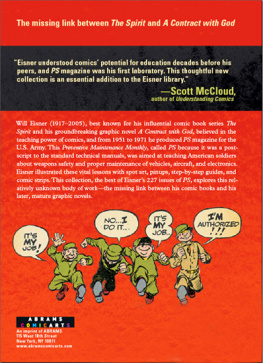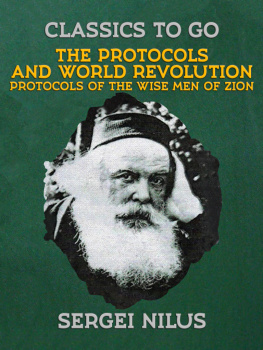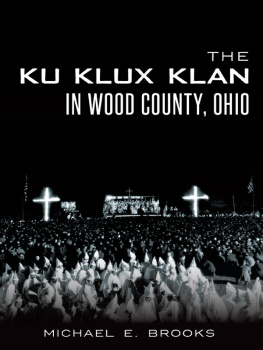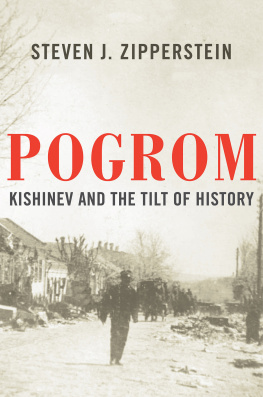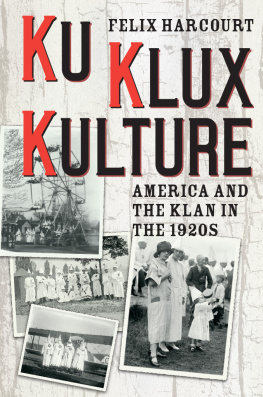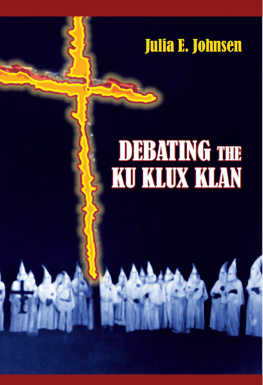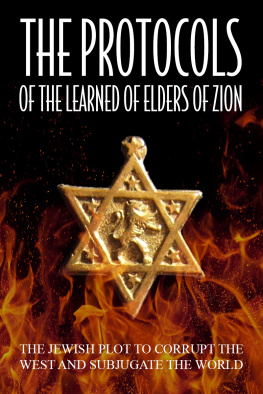Will Eisner - A Contract with God
Here you can read online Will Eisner - A Contract with God full text of the book (entire story) in english for free. Download pdf and epub, get meaning, cover and reviews about this ebook. year: 2013, publisher: W. W. Norton & Company, genre: Home and family. Description of the work, (preface) as well as reviews are available. Best literature library LitArk.com created for fans of good reading and offers a wide selection of genres:
Romance novel
Science fiction
Adventure
Detective
Science
History
Home and family
Prose
Art
Politics
Computer
Non-fiction
Religion
Business
Children
Humor
Choose a favorite category and find really read worthwhile books. Enjoy immersion in the world of imagination, feel the emotions of the characters or learn something new for yourself, make an fascinating discovery.

- Book:A Contract with God
- Author:
- Publisher:W. W. Norton & Company
- Genre:
- Year:2013
- Rating:3 / 5
- Favourites:Add to favourites
- Your mark:
- 60
- 1
- 2
- 3
- 4
- 5
A Contract with God: summary, description and annotation
We offer to read an annotation, description, summary or preface (depends on what the author of the book "A Contract with God" wrote himself). If you haven't found the necessary information about the book — write in the comments, we will try to find it.
A Contract with God — read online for free the complete book (whole text) full work
Below is the text of the book, divided by pages. System saving the place of the last page read, allows you to conveniently read the book "A Contract with God" online for free, without having to search again every time where you left off. Put a bookmark, and you can go to the page where you finished reading at any time.
Font size:
Interval:
Bookmark:
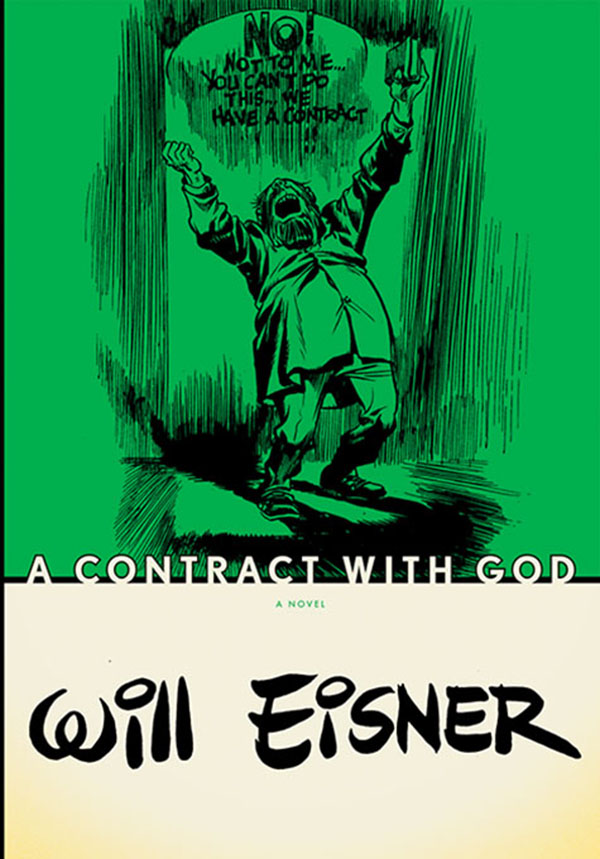
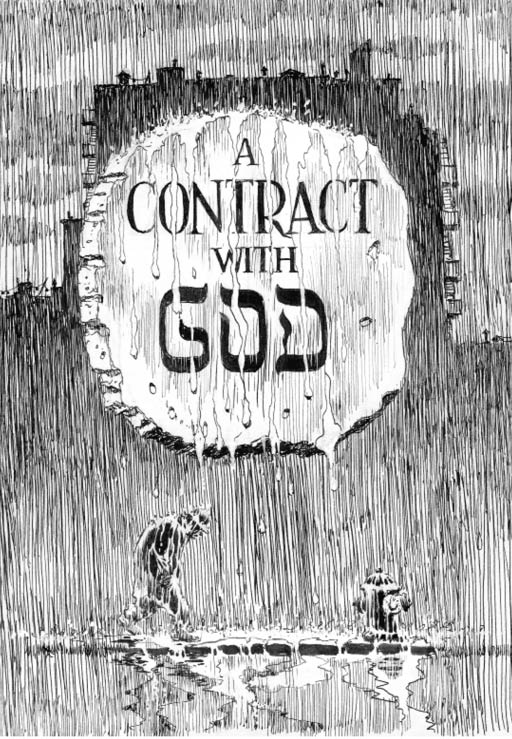
The Will Eisner Library
from W. W. Norton & Company
Paperbacks
The Plot: The Secret History of the Protocols of the Elders of Zion
The Name of the Game
Minor Miracles
A Family Matter
Dropsie Avenue: The Neighborhood
Invisible People
To the Heart of the Storm
Will Eisner Reader
The City People Notebook
A Life Force
The Building
New York: The Big City
The Dreamer
Life on Another Planet
Hardcover Compilations
Will Eisners New York: Life in the Big City
Life, in Pictures: Autobiographical Stories
The Contract With God Trilogy: Life on Dropsie Avenue
Instructional Textbooks
Graphic Storytelling and Visual Narrative
Comics and Sequential Art
Expressive Anatomy for Comics and Narrative
A Contract With God
and Other Tenement Stories
A Graphic Novel by


W. W. Norton & Company
New York London
Contents
List of New Illustrations
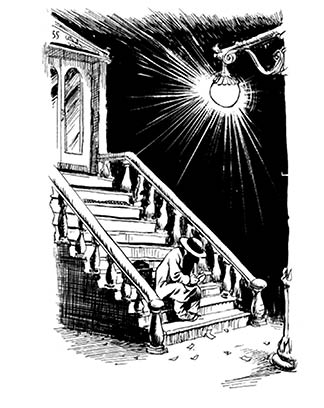
Preface
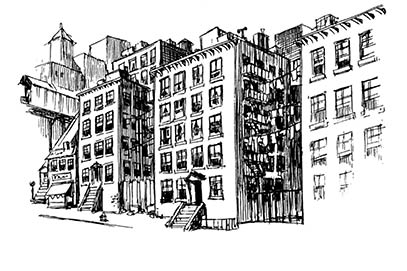
T his book contains stories drawn from the endless flow of happenings characteristic of city life. Some are true. Some could be true.
Born and brought up in New York City and having survived and thrived there, I carry with me a cargo of memories, some painful and some pleasant, which have remained locked in the hold of my mind. I have an ancient mariners need to share my accumulation of experience and observations. Call me, if you will, a graphic witness reporting on life, death, heartbreak and the never-ending struggle to prevail... or at least to survive.
In 1978, encouraged by the work of the experimental graphic artists Otto Nckel, Franz Masareel and Lynd Ward, who in the 1930s published serious novels told in art without text, I attempted a major work in a similar form. In a futile effort to entice the patronage of a mainstream publisher, I called it a graphic novel. It was a collection of four related stories, drawn from memory, which took place in a single tenement in the Bronx. The title of the book, named for the lead story, became A Contract With God . Though no major publisher would touch it at the time, this novel has remained in print for twenty-seven years, and has been published in eleven different languages. I followed this first effort with other more ambitiously constructed graphic novels. All are anchored on a single street in the borough of the Bronx in New York City. The street is Dropsie Avenue, a caricature of a neighborhood that is nevertheless very real to me.
As the story unfolds, it is at 55 Dropsie Avenue where Frimme Hersh deals with God; where the street singer fails to grasp his chance for glory. It is on Dropsie Avenue where a diminutive enemy defeats the super, and Willie comes of age. It is also on Dropsie Avenue, finally, where I undertake the biography of the street itself, through the physical evolution of the block, the rise and fall of the tenement building at No. 55 and the ethnic and social changes of its stream of occupants.
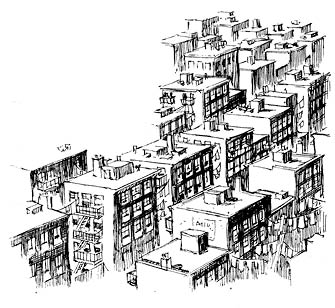
The tenementthe name derives from a fifteenth-century legal term for a multiple dwellingalways seemed to me a ship afloat in concrete. After all, didnt the building carry its passengers on a voyage through life? No. 55 sat at the corner of Dropsie Avenue near the elevated train, or the elevated as we called it in those days. It was a treasure house of stories that illustrated tenement life as I remembered it, stories that needed to be told before they faded from memory. Within its railroad flats, with rooms strung together train-like, lived low-paid city employees or laborers and their turbulent families. Most were recent immigrants, intent on their own survival. They kept busy raising children and dreaming of the better life they knew existed uptown. Hallways were filled with a rich stew of cooking aromas, sounds of arguments, and the tinny wail from Victrolas. What community spirit there was stemmed from the common hostility of tenants toward the landlord or his surrogate superintendent. Typically, the buildings tenants came and went with regularity, depending on the vagaries of their fortunes. But many remained for a lifetime, imprisoned there by poverty or old age. Within its walls great dramas played out. There was no real privacy or anonymity. Everybody knew about everybody. Human dramas, both good and bad, instantly gathered witnesses like ants swarming around a piece of dropped food. From window to window or on the stoop below, the tenants analyzed, evaluated and critiqued each happening, following an obligatory admission that it was really none of their business.
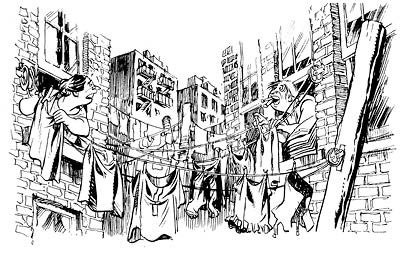
A Contract With God, the first part of this book, examines the subject of mans relationship with his God. This very basic human preoccupation stems from the primal concern with survival. We are told early on that God will either punish us or reward us, depending on our behavior, in accordance with a compact. The clergy provides the terms, edicts, and conditions, and our parents enforce this contract.
The creation of this story was an exercise in personal agony. My only daughter, Alice, had died of leukemia eight years before the publication of this book. My grief was still raw. My heart still bled. In fact, I could not even then bring myself to discuss the loss. I made Frimme Hershs daughter an adopted child. But his anguish was mine. His argument with God was also mine. I exorcised my rage at a deity that I believed violated my faith and deprived my lovely 16-year-old child of her life at the very flowering of it. This is the first time in thirty-four years that I have openly discussed it.
The Street Singer was a creature of the Depression years. These were desperate times when no device to earn some money was beyond reproach. The street singers were men who appeared in the narrow space between the tenements to provide impromptu concerts. As a boy I often tossed a penny down into our back alley for the man who regularly appeared there to sing, in a wine-soaked voice, popular songs or off-key operatic arias. Mothers seemed charmed by this seedy romantic troubadour. Fathers were sure he was a spy for robbers, and the meaner kids sometimes threw down a button wrapped in paper to see how angry the man would get when he opened it. To me, however, he brought a bit of theatrical glamour to the grim alley. The mystery about who he was has remained with me over the years. Finally, with this book about tenement life, I was able to immortalize his story.
The Super is a story built around the mysterious but threatening custodian of the Bronx apartment house where I lived as a young boy. Since we never had contact with or even knew the landlord, the superintendent was the person we dealt with on the day-to-day matters of habitation. He lived in the cellar, was unmarried, and seemed perpetually cranky, probably because he was constantly being annoyed by tenants who demanded repairs, better heat in the winter, or complained about poor maintenance. Generally the super was feared and avoided, and blamed for any unusual happening, real or imagined.
Font size:
Interval:
Bookmark:
Similar books «A Contract with God»
Look at similar books to A Contract with God. We have selected literature similar in name and meaning in the hope of providing readers with more options to find new, interesting, not yet read works.
Discussion, reviews of the book A Contract with God and just readers' own opinions. Leave your comments, write what you think about the work, its meaning or the main characters. Specify what exactly you liked and what you didn't like, and why you think so.

